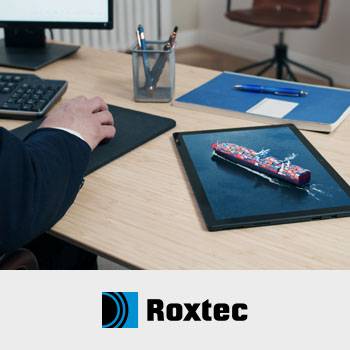In contrast to people who may still be hoping to find space on a cruise ship, Dan Zivney knows exactly where he'll be on New Year's Eve. He'll be watching for "Y2K bugs." As project director for Mobil's Year 2000 project, Zivney will be in one of seven regional Mobil incident response centers that will follow the new millennium as it makes its entrance around the world.
"Quite frankly, I'm optimistic that our preparedness will reduce or eliminate the work for the response centers," he says. "I want our program to be so successful that the end of 1999 and the beginning of the year 2000 will be remembered as nothing more than a big yawn. However, the residual risks from potential Y2K failures by external parties require us to take precautions."
For more than three years, representatives from Mobil's business units worldwide and Zivney's Y2K team have been busy testing, fixing and replacing Mobil equipment impacted by the problem, often called the Y2K bug. Zivney acknowledges the Y2K bug could have caused some operational problems for Mobil if it had been ignored.
"By making Y2K the highest priority, and receiving total cooperation throughout the world, our employees have positioned Mobil to be ready for the new millennium," he says. "Over the past three-plus years, we've had more than 250 people working full time on the project, and probably another 1,500 who have made significant contributions.
"Their bottom line goal has been to ensure that the Year 2000 arrives safely for our employees and neighbors, problem free for our customers, and without an environmental incident."
Looking At Everything
While he recognizes that it is almost impossible to find every potential Y2K problem in a company with systems as large, widespread and diverse as Mobil, Zivney believes all the bugs that had the potential to cause major disruptions have been detected and appropriately addressed.
But to ensure the company is adequately prepared, Mobil units around the world developed business continuity and contingency plans based on various Y2K scenarios. More than 230 Mobil employees trained in this process are involved in this effort. The process highlights business risks associated with the year 2000 and results in strategies to mitigate the risk, wherever feasible, develop contingency plans to maintain operations and minimize customer impacts should an unforeseen upset occur.
These plans involve decisions around inventory levels of raw materials - such as crude oil, and finished products - like gasoline, changes in plant operating schedules, discretionary shutdowns, extra equipment or adjustments to marine vessel operations, to name just a few possibilities. These plans were completed in the first half of the year and are being tested during the second half.
So by planning, preparing and double-checking, Zivney and his team are working towards a January 1, 2000, on which oil and gas wells should pump, refineries should run and customers should be able to buy Mobil gasoline using cash, credit card or their Mobil Speedpass; and other customers can be billed, suppliers can be paid and paychecks can be distributed as usual.
A Four-Year Project
Mobil's Y2K efforts started in 1996, when a small team of technical professionals began to evaluate the company's Y2K exposure. Their findings led to the formation in early 1997 of the Millennium Project team, which immediately launched a worldwide, intensive campaign to identify, evaluate, test and fix potential glitches in Mobil systems.
Adopting a centralized approach to overall project coordination, Mobil's experts ensured the problem was approached consistently throughout the company, regardless of the level of resources and technological support available locally. This centralized strategy was essential for success when business unit process control coordinators at almost 150 sites and technical personnel set out to collect a worldwide inventory and consistently apply the appropriate corrective fix.
The work has been painstaking, thorough and nonstop. "Most of us who use computer applications don't look beneath the surface at the programming code and logic," Zivney notes. "In many cases program date codes haven't been checked in years because it hasn't been necessary. So we had to go through the process of testing all our major applications and assessing date elements that could cause a problem."
But all the work has produced other benefits. As a result of the Y2K review, Mobil business units now have more reliable, more cost-effective and safer systems to carry them into the new millennium. "For example, we have replaced more than 350 individual applications with the SAP integrated system in North America and in our worldwide chemical company, which will provide business and financial efficiencies beyond eliminating the Y2K bug," says Zivney. SAP, which stands for Systems, Applications and Products, is a software system that integrates business processes from sales and distribution through finance to optimize supply chains, improve customer and supplier relationships, allowing for better management decisions.
"Internationally, we have simplified our computing and telecommunications infrastructures and introduced greater standardization around core business applications. Globally, these Year 2000 programs will deliver millions of dollars per year in operational savings and business efficiencies in such areas as cash management, terminal and retail automation and inventory optimization. More importantly, they provide greater flexibility for future business improvements."
Test And Test Again
Testing has been a key component of the Y2K program. In addition to running trials on internal Mobil computer applications, the team is testing integrated systems such as those that do electronic fund transfers with banks or that send information to government agencies. "We can't just assume something's compliant," notes Zivney "We've defined tests around various scenarios based on what that particular application or process control device does. It's not easy, and we won't catch every single potential error because of how the programs have been developed over the years. But we've given the most critical applications and control systems a very, very high level of attention."
To minimize exposure to such problems, Mobil has worked to identify and prioritize key suppliers. "We have contacted more than 5,000 of our most critical suppliers, and as the Mobil business units prepare their contingency plans they continue to follow up to confirm those suppliers' Y2K readiness," says Zivney.
Industrywide Cooperation
Every company in the energy industry faces the same challenges, Zivney says, so avoiding these problems is a common goal. To that end, oil and natural gas companies have shared best practices and solutions through industry trade organizations such as the American Petroleum Institute, the American Gas Association, the Australian Institute of Petroleum and the United Kingdom's Offshore Oil Association, and others. In addition, many companies like Mobil support Y2K programs with key business partners in the countries in which they operate.
"For example, in Japan, Indonesia, Nigeria and Qatar, we're sharing solutions with the government-owned oil companies and joint venture business partners," Zivney says. "We are building on Mobil's efforts by helping the international operations with which we're involved."
Oil-producing countries are highly motivated to keep their income streams moving, he notes, and many are allocating extra resources to their Year 2000 preparedness plans, regardless of how much they rely on technology.
In addition, many governments and regulatory agencies are requiring compliance reporting and completion dates well ahead of January 1, not only in the oil and gas industry but also in banking, utilities and other industries that are critical to keep Mobil products moving.
Sponsored Content
LR - Fit for 55: Managing compliance and optimising operations

Use Roxtec seals, services and software

Subscribe for
Maritime Reporter E-News
Maritime Reporter E-News is the maritime industry's largest circulation and most authoritative ENews Service, delivered to your Email five times per week









